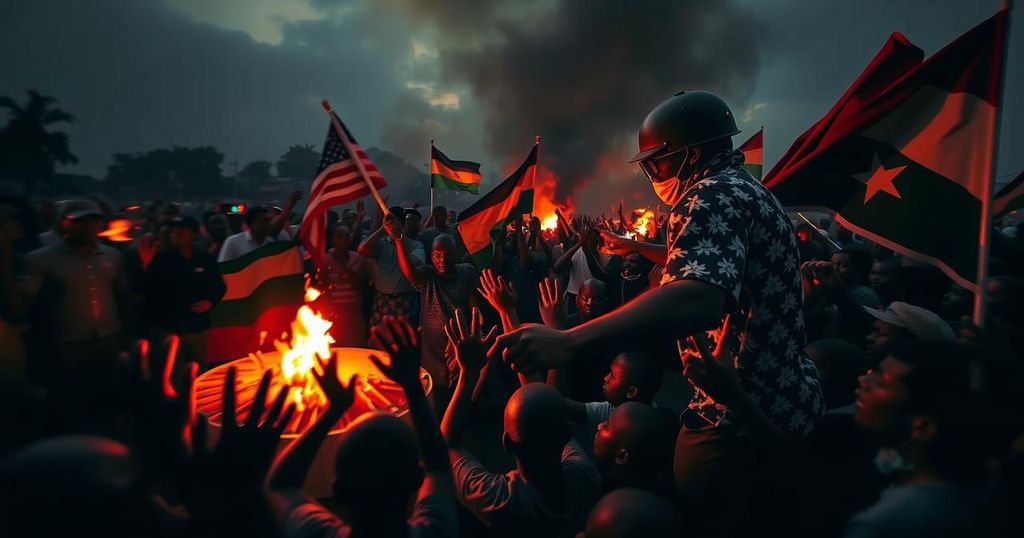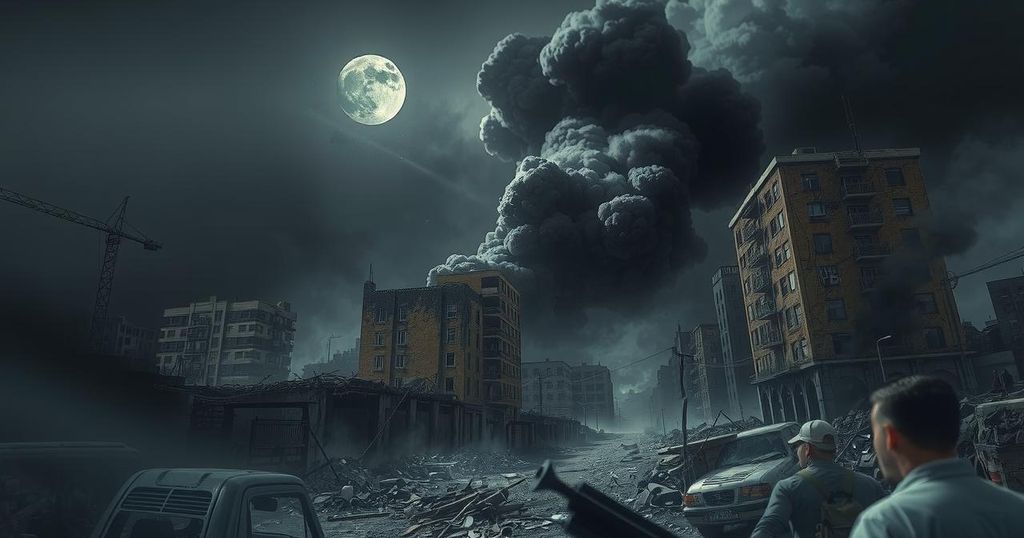The Human Cost of Sudan’s Ongoing Civil War
The civil conflict in Sudan, ignited in April 2023, has resulted in a humanitarian crisis affecting millions. Over 10.7 million individuals are internally displaced, and nearly 3 million have sought refuge in nearby countries. The war has led to extreme hunger, a collapsed healthcare system, and numerous human rights violations. Without significant international attention and assistance, the prospects for peace and recovery remain bleak.
Since April 2023, a violent struggle for power between Sudan’s military and paramilitary groups has escalated into a severe humanitarian crisis. The conflict, primarily between the Sudanese Armed Forces (SAF) and the Rapid Support Forces (RSF), has resulted in grave consequences for civilians, turning cities into battlegrounds and leading to extensive displacement. Reports indicate that over 10.7 million individuals have been displaced internally, while nearly 3 million have fled to neighboring countries seeking refuge. The United Nations World Food Programme (WFP) highlights that over 25 million Sudanese endure acute hunger, with further regions at risk of impending famine. As essential services collapse, widespread violence exacerbates the already dire situation for the populace. Tragically, thousands of lives have been lost, and documented atrocities from both factions continue to fuel the conflict’s severity. The RSF, a paramilitary group that emerged during the Darfur conflict, has often been linked to grave human rights violations, including ethnic cleansing. Following the overthrow of former President Omar al-Bashir in 2019, tensions between the SAF and RSF escalated over power-sharing arrangements, ultimately culminating in full-scale warfare in April 2023. The humanitarian crisis has attracted limited international attention, leaving relief efforts hampered by continuous fighting and insufficient funding. The humanitarian landscape depicts a catastrophic scenario. Healthcare systems have disintegrated, with hospitals suffering from bombardment and a lack of medical supplies. Organizations such as Médecins Sans Frontières (MSF) have reported a dramatic inability to provide care for malnourished children due to blockades that hinder the delivery of humanitarian aid. Compounding these challenges, violent confrontations have led to starvation, with millions unable to access food. Prices of basic commodities have skyrocketed, further complicating the survival of families in need. As violations of human rights persist, accountability for war crimes remains elusive. The International Criminal Court has initiated investigations, yet militant groups continue operating without fear of reprisal. In conclusion, the crisis in Sudan illuminates the grave consequences of civil conflict, revealing the urgent necessity for international involvement and humanitarian assistance. Without decisive action, the humanitarian situation will only deteriorate, leaving the future of millions in jeopardy.
The conflict in Sudan stems from a power struggle between two major armed factions: the Sudanese Armed Forces (SAF) and the Rapid Support Forces (RSF). The RSF, which originated as part of the Janjaweed militia during the Darfur conflict, became prominent in Sudanese politics following the ousting of Omar al-Bashir in 2019. Tensions escalated as disputes over military integration and control of resources worsened, leading to violence erupting in April 2023 and a subsequent humanitarian crisis, significantly impacting the civilian population.
In conclusion, the events unfolding in Sudan showcase the catastrophic effects of a civil war where both humanitarian crises and human rights abuses are prevalent. Millions live in desperation, forced from their homes with inadequate access to food, healthcare, and safety. The absence of substantial international intervention signifies an urgent need for global attention and support to alleviate the suffering endured by the Sudanese people.
Original Source: humanglemedia.com








Post Comment